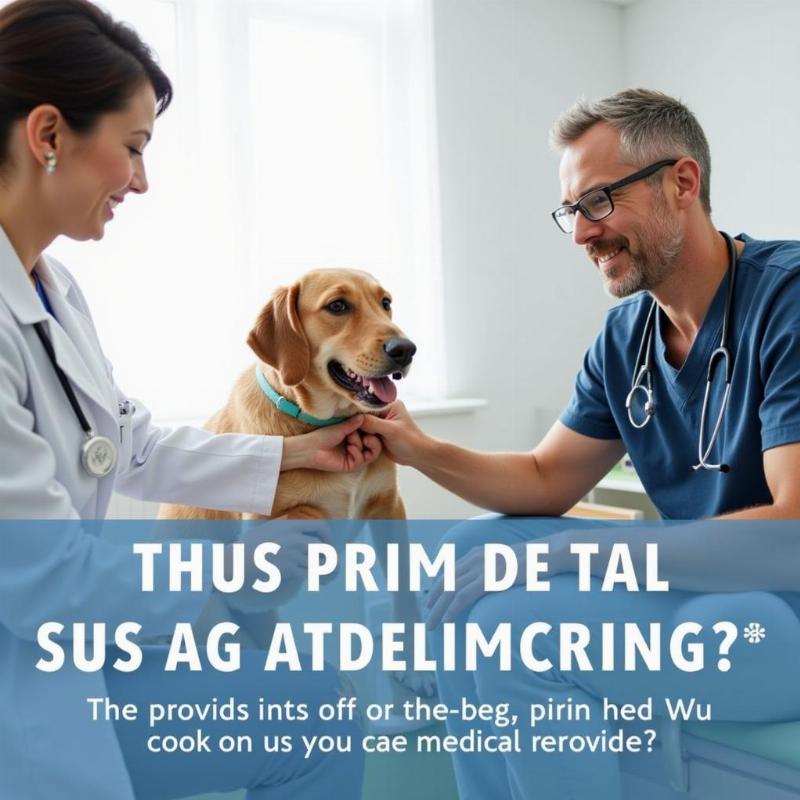After improperly licking a dog, several health concerns might arise for humans. Improper licking, such as contacting a dog’s saliva with an open wound or mucous membranes, can transmit bacteria, parasites, and other pathogens. Understanding these risks and taking appropriate precautions are essential for protecting your health. This article dives into the potential health issues after improperly licking a dog, providing valuable insights for dog owners across the US.
While the bond between humans and dogs is undeniably strong, it’s crucial to maintain hygienic practices to minimize health risks. Dogs explore their environment with their mouths, potentially exposing themselves to harmful microorganisms that can be transmitted through saliva. Therefore, understanding the potential consequences of improper licking is paramount for responsible dog ownership.
Understanding the Risks of Licking
Improper contact with dog saliva can introduce a variety of pathogens to humans. Bacteria like Capnocytophaga canimorsus, while commonly found in dog mouths, can cause severe infections in humans, especially those with weakened immune systems. Parasites like roundworms and hookworms can also be transmitted through saliva, potentially leading to intestinal issues. Additionally, fungal infections like ringworm can spread through direct contact with infected saliva.
What are the common symptoms of infection after improperly licking a dog? Symptoms can vary depending on the pathogen involved but may include fever, chills, redness, swelling, and pain at the site of contact. Gastrointestinal symptoms like vomiting and diarrhea may also occur if parasites are ingested.
Are all dogs carriers of these pathogens? Not all dogs carry harmful pathogens, but the risk always exists. Regular veterinary checkups and preventative care can minimize the risk of infection for both dogs and their owners.
Preventing Infection After Licking
Taking simple precautions can significantly reduce the risk of infection after contact with dog saliva. Avoid letting your dog lick your face, especially near your mouth, nose, and eyes. Wash your hands thoroughly with soap and water after interacting with your dog, especially after handling their saliva. If you have any open wounds or cuts, cover them properly to prevent contamination.
When to Seek Medical Attention
If you experience any unusual symptoms after improperly licking a dog, seek medical attention promptly. Early diagnosis and treatment can prevent complications and ensure a swift recovery. Inform your doctor about your interaction with the dog and describe your symptoms in detail.
 Doctor examining a patient with infection
Doctor examining a patient with infection
Conclusion
While the love between humans and their canine companions is special, it’s essential to prioritize health and safety. Understanding the potential health risks associated with improperly licking a dog and taking appropriate preventative measures can protect both you and your furry friend. Regularly washing your hands, avoiding direct contact with saliva, and seeking medical advice when necessary are crucial steps in ensuring a healthy and happy relationship with your dog. Remember, responsible dog ownership involves understanding and mitigating potential health risks related to close contact. After improperly licking a dog, taking immediate action to clean the affected area and monitor for any symptoms is crucial for your well-being.
FAQ
- What is the most common infection from dog saliva? Capnocytophaga canimorsus is a bacteria commonly found in dog mouths that can cause severe infections in humans.
- Can I get rabies from dog saliva? Rabies is a serious concern, but it’s primarily transmitted through bites, not saliva. Ensure your dog is vaccinated against rabies.
- How long after licking a dog should I be concerned? If you develop symptoms like fever, chills, or redness at the site of contact, seek medical attention within 24-72 hours.
- What if my dog licks my open wound? Clean the wound thoroughly with soap and water and apply an antiseptic. Consult a doctor if you notice any signs of infection.
- Is it safe to let my dog lick my child? It’s best to discourage dogs from licking children’s faces, especially near the mouth, nose, and eyes.
- Are there any home remedies for infections from dog saliva? Home remedies are not a substitute for medical care. Consult a doctor for appropriate treatment.
- Can dog saliva cause allergic reactions? Some individuals may be allergic to dog saliva, experiencing symptoms like skin rash, itching, or difficulty breathing.
Beautdogs.us is your premier online resource for comprehensive dog care information, breed-specific advice, and top-quality product recommendations. Whether you’re a seasoned dog owner or just starting your journey, Beautdogs.us offers expert guidance and reliable information to help you provide the best care for your canine companion. Contact us today for personalized advice and support! Email: [email protected], Phone: +1 501-555-7529. Connect with Beautdogs.us, your trusted partner in dog care.